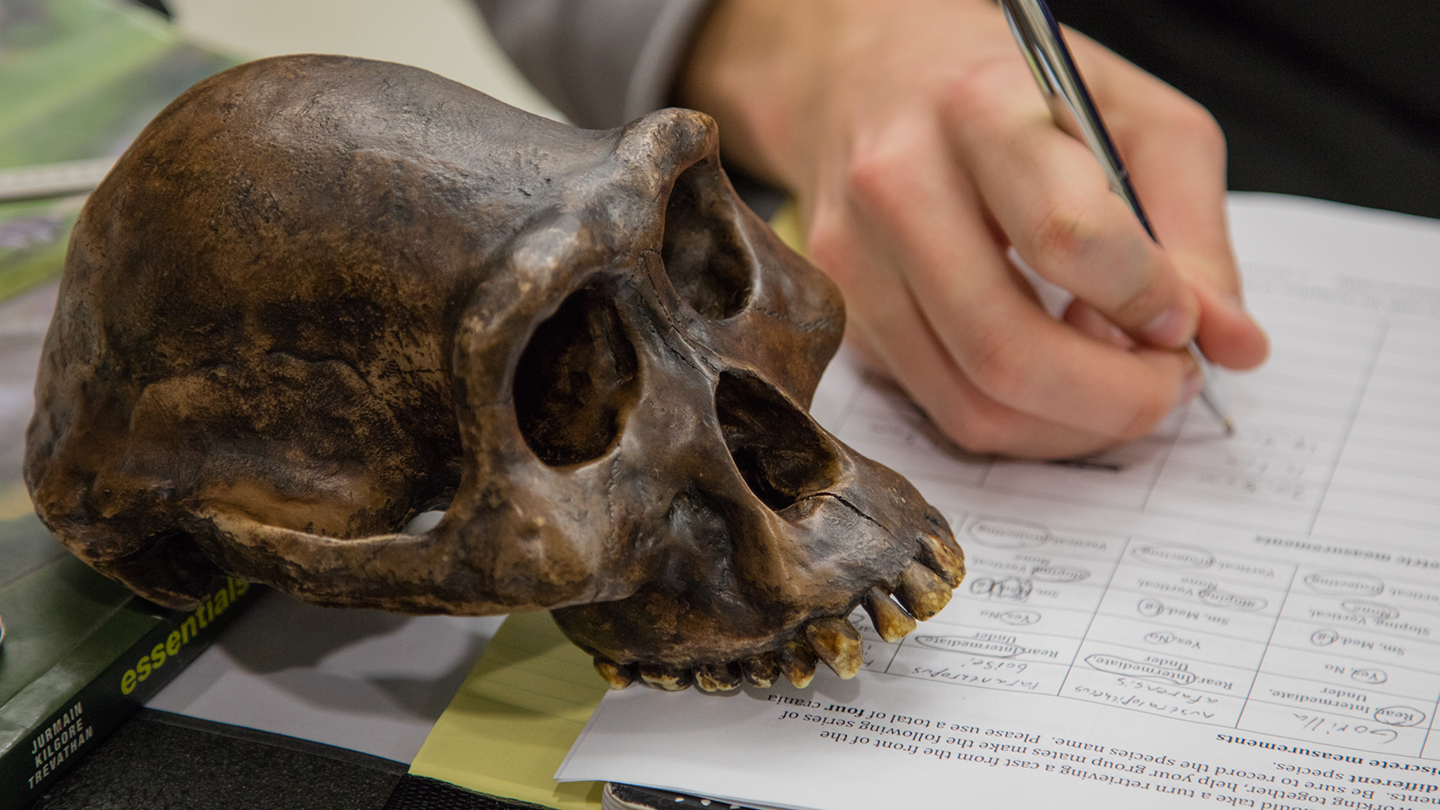
Primate Behavior and Ecology
Master of Science in Primate Behavior
About the Primate Behavior, MS
In the Primate Behavior graduate program, venture into the study of primate behavior, going beyond textbooks and classrooms into the real-world environments where primates thrive. Although the program focuses on primatology, many theories and methodologies like evolutionary theory and comparative psychology are utilized throughout this program, so you graduated equipped with the tools to succeed. We focus on humane, noninvasive behavioral research with primates, emphasizing ethics in primatology and the importance of biodiversity. In our program, you are not just learning about primates, but shaping the future of their conservation.
Visit Department WebsiteWhy Study Primate Behavior at CWU?
Oue Primate Behavior, MS, offers you the opportunity to complete internships and research with non-human primates in both captive and free-living settings
You will have the amazing opportunity to gain chimpanzee care and husbandry training at Chimpanzee Sanctuary Northwest, study in China, or conduct research at the Gibbon Conservation Center in Santa Clarita, CA. Our faculty facilitate these strong relationships, so you can gain practical experience before graduation.
Where is this program offered?
How much does this program cost?
Explore information on Cost, Aid, and Value to make an informed decision about investing in your education at CWU.
Does CWU offer assistantships?
Assistantship opportunities are available in the Primate Behavior and Ecology Program. Find opportunities to fund your degree through the School of Graduate Studies and Research.
For more information about financial assistance in the Primate Behavior and Ecology Program, reference our Financial Information.
Find opportunities to fund your degree through the School of Graduate Studies and Research.
Where can I find more information?
Please visit the CWU Academic Catalog for current information about admission requirements, course descriptions, learner outcomes, and credit information.
Admission Requirements
In addition to the School of Graduate Studies and Research requirements, applicants for admission to the Primate Behavior program must meet the following qualifications:
- Students must submit a statement of purpose. Questions that should be addressed within this statement will be provided upon request.
- Students must hold an undergraduate degree in anthropology, psychology, or biology.
- Before admission, program faculty will evaluate the academic course work and experience of all applicants for admission and will recommend remedial course work if, in their judgment, there are deficiencies in pre-baccalaureate work which need to be overcome before entrance into the program. Admission to the program and continuation of it may be conditional on the applicant's satisfactory completion of remedial courses. Such courses will not count toward the program credit requirement, but in some cases, they may be taken after admission to the program.
- International students for whom English is a second language must provide TOEFL scores to demonstrate English proficiency.
- Students must arrange for a graduate faculty advisor in the program to serve as their committee chair.
Visit the School of Graduate Studies and Research for additional program eligibility information.
Careers and Opportunities
With the MS in Primate Behavior, you are preparing to make a significant impact, whether it is leading research initiatives, championing conservation policies, or inspiring others through education.
- Research Scientist: With an MS in Primate Behavior, you can work as a research scientist and you may conduct independent research, design, and implement studies on primate behavior, contribute to scientific publications, and advance our understanding of primate behavior and cognition.
- Field Primatologist: Work as a field primatologist, studying primate behavior in their natural habitats. This career involves conducting field research, observing primate groups, collecting data, and contributing to conservation efforts.
- Zoo and Sanctuary Positions: You could work in zoos, wildlife sanctuaries, or primate rehabilitation centers. Your role can involve overseeing the care and enrichment of captive primates, conducting behavioral assessments, and implementing research programs within these settings.
Highlights
Prepared for Your Field of Interest
CWU’s Primate Behavior and Ecology program is unique in the United States by preparing students for conservation careers in governmental and nongovernmental organizations, as well as in primate laboratories, zoos, and other captive facilities. The program uses an interdisciplinary approach to exploring the relationships between non-human primates and the environment in both captive and free-range settings.
Chimpanzee Sanctuary Close to Home
Students in CWU’s Primate Behavior and Ecology program can learn about chimpanzee care and husbandry training at the Chimpanzee Sanctuary Northwest, 20 miles west of Ellensburg.
Related Programs

Graduate Degrees
Art, MFA
At CWU, we offer a terminal MFA for students interested in studying visual art beyond undergraduate work.

Graduate Degrees
Biology, MS
You will have the opportunity to conduct original research and work alongside expert faculty.
Questions? Contact Us.
Dr. April Binder, Primate Behavior and Ecology Director
(509)-963-3201
Penelope.Anderson@cwu.edu